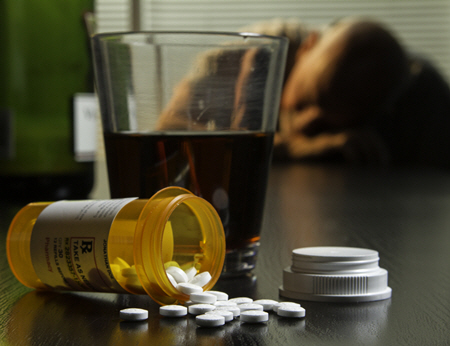 Michelle’s problem was alcohol.
Michelle’s problem was alcohol.
Michelle* works in finance and goes to happy hour several times a week. Her career is not progressing, and relationships are frequently a letdown. Most of her friends and family are married, and she often feels like a third wheel when she spends time with them.
When Michelle goes out after work, she sometimes has too much to drink. When she gets “sloppy” drunk, she sometimes has sexual encounters that she later regrets. Michelle hates wasting the next day with a hangover and wants to stop over-drinking. As we talked, Michelle realized staying late at the bar was her way of avoiding going home to an empty apartment.
Michelle was lonely and felt like overdoing it didn’t matter because she did not have a partner or kids that required accountability. When I asked her how she felt about what she was doing to herself, Michelle started crying because she knew that over-drinking was unhealthy and a waste of time. Rather than building the life and social connections she wanted, Michelle spent more time recovering from hangovers.
We worked together to help Michelle find things in her life that were more potent motivators than alcohol. She signed up for an art class, joined a book club, and started going on hikes with a group on weekends and knowing that getting up early to go hiking encouraged her to leave the bar and avoid hangovers. Michelle found it easy to curb her drinking once she filled her life and time with things she valued more.
Dave’s problem started after back surgery.
Dave* is self-employed in a creative field and spends considerable time alone. After back surgery, his doctor prescribed Percocet. He continued taking Percocet through his recovery at a higher dose than recommended. He continued purchasing Percocet illegally after his surgery but never considered himself an addict or a criminal.
Dave maintains his work and personal obligations but doesn’t like the idea of being dependent on anything and feels afraid he will get arrested.
We talked about how to reduce the potential harm from his habit, and I provided Dave with information on how to order Fentanyl testing kits. Fentanyl is a highly potent, potentially fatal opioid used to lace illegally sold drugs like Percocet. He started testing his supply for Fentanyl before he used it to reduce the risk of overdose.
Dave felt uncomfortable sharing with most people but did confide in his roommate. He gave his roommate a Narcan (nasal spray that reverses opioid overdose) kit and taught him how to use it in case Dave accidentally overdosed. We advised his roommate about the importance of administering Narcan and calling 911 in case Dave overdosed. I helped Dave connect with a doctor who could prescribe Suboxone, which helped reduce Dave’s opioid dependence.
Dave told me he had struggled with anxiety all his life. When he took the Percocet after his surgery, it was the first time he had experienced a sense of calm. I taught Dave various coping strategies for his anxiety, including breathing techniques, journaling, and yoga. We also practiced challenging his anxious thoughts, and the yoga helped reduce Dave’s residual back pain. Eventually, Dave tapered off Suboxone with guidance from the doctor. When Dave thinks of using Percocet, he has the tools to manage those urges.
 Are you concerned about your substance use?
Are you concerned about your substance use?
If you’re here, it’s likely that you feel concerned or are beginning to question if you should be.
Perhaps, you’ve already tried to cut back or stop but know that telling yourself not to drink or use is like telling yourself not to think about pink elephants. The harder you try to avoid the substance, the more you think about it. And there’s so much stigma around substance use, making it incredibly difficult to tell anyone about your problem.
In our work together, I won’t judge or label. I don’t think that approach helps; it paints an inaccurate picture of who you are. You’re so much more than just this one thing.
I work with each client individually to find solutions that work for them. There isn’t a one-size-fits-all approach. If you’re going to AA meetings and that’s working for you, great; keep going! But if you don’t think AA is for you, there are plenty of other options. We can work individually to understand your substance use and devise alternatives for you.
It’s prevalent for people who use more drugs or alcohol than they would like to have a history of trauma, anxiety, or depression. When we treat the underlying condition, the desire to use substances dissipates. If needed, I can also help connect you with a medical provider who may prescribe you medications that can make it easier to reduce or eliminate your substance use.
Are you here because you’re concerned about a loved one?
You’ve tried begging, arguing, nagging them to get help, but it hasn’t worked. People often ask me how to force a friend or family member into treatment. Unfortunately, that’s not possible. For someone to get help, they must want it themselves.
However, I can support you in learning more productive ways to talk to them about their use. I have training in CRAFT (Community Reinforcement and Family Training), a modality developed to help people cope with a loved one’s substance use.
CRAFT includes techniques for talking to them about their use in a way that won’t further alienate them and help increase the likelihood of them engaging in treatment. CRAFT can help you manage your frustration, sadness, and anger that may result from having a loved one misusing substances.
 Do no harm is my motto.
Do no harm is my motto.
I practice from a harm reduction perspective, which means I don’t adhere to the “abstinence-only” model of 12-Step Programs. Harm reduction means we work to reduce the potential for harm inherent in any activity, including everything from putting on a seat belt to using a clean needle when you inject heroin.
Harm reduction can include complete abstinence from all substances if that’s your goal, but it’s not your only choice. If you’d like to continue to use it in moderation, I’ll work with you to find a balance that is right for you.
Take it from Michelle and Dave; seeking help and learning strategies is better than going alone. Life is too short to be weighed down by the unhealthy use of substances.
*Names changed to protect client confidentiality.
Order Fentanyl test strips: https://dancesafe.org/product/fentanyl-test-strips-pack-of-10-free-shipping/

